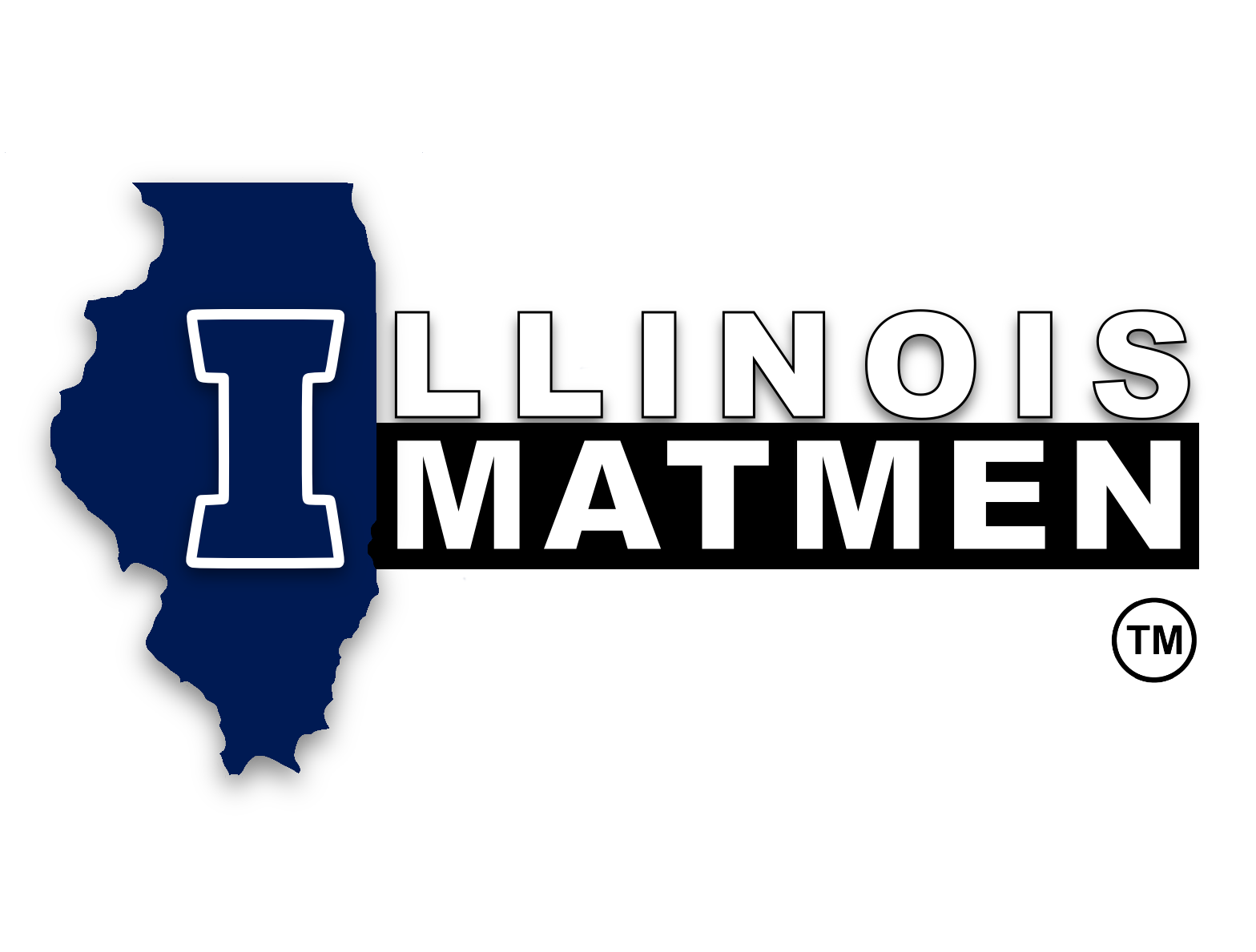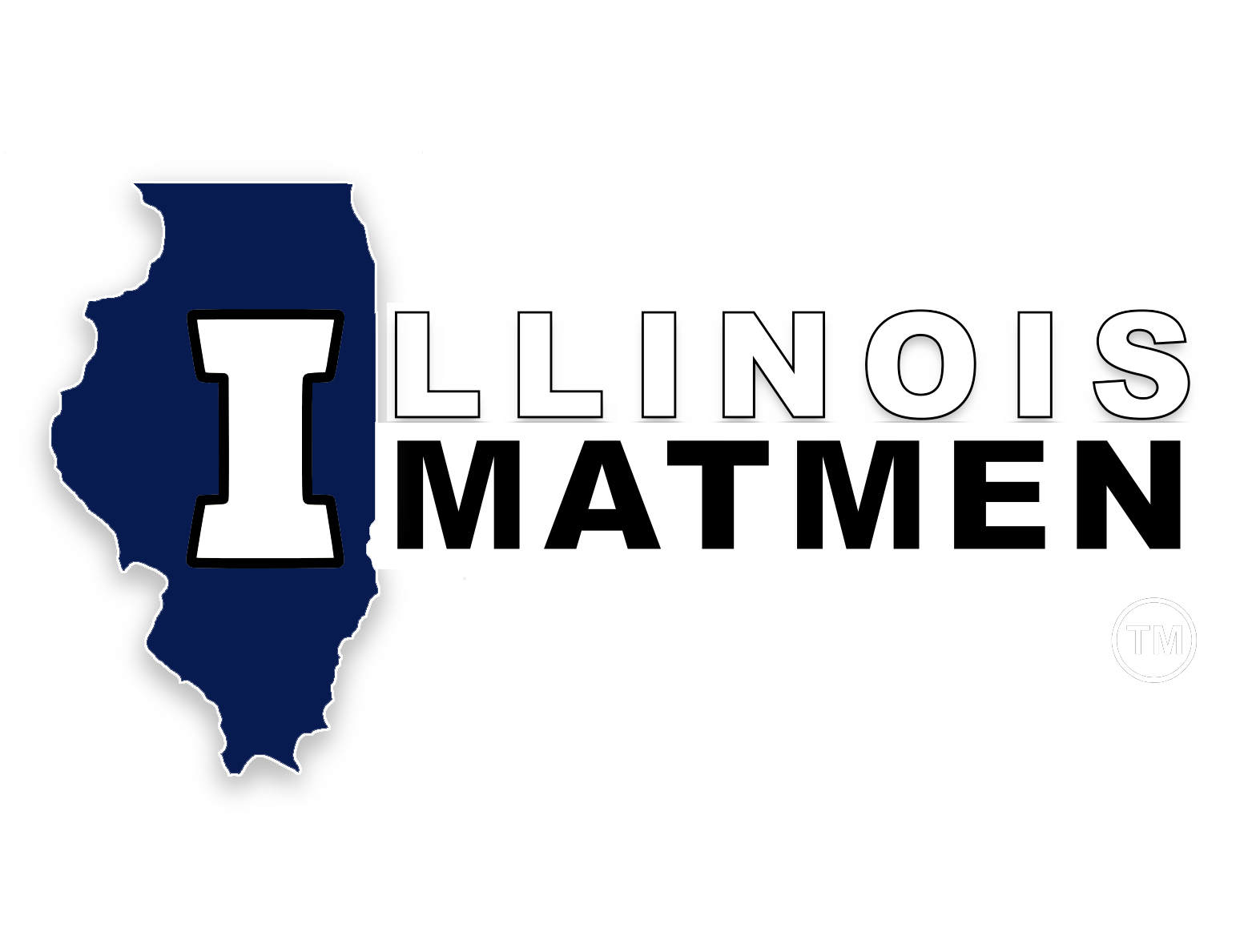Note: This is the second of a two-part Q&A with IHSA Executive Director Craig Anderson.
By JARED BELL
Illinois Matmen
The IHSA Dual Team State Tournament is here.
After three weeks of individual postseason competition, Illinois wrestling teams will take to the mat Saturday at the U.S. Cellular Coliseum in Bloomington as all will look to win a state title.
With the state finals just days away, Illinois Matmen sat down with IHSA Executive Director Craig Anderson at last Friday’s individual state tournament to discuss the dual team format, stacked regionals and the one thing he wishes wrestling fans knew about the IHSA.
Matmen: Do you see any issues with how the dual team format is set up?
Anderson: I don’t know if ‘Issue’ is the right word.
When we look as a nation, there are states that don’t do a dual team event and there are some that do it midseason, and if that’s better for us that we separate it from the end of the year, I’m not opposed at looking at that option.
Our attendance at dual team state isn’t great, and that’s one thing I have to worry about is attendance at our state final events, but we don’t want us providing the event based on attendance. We want to do it for the kids, our teams and our schools, so until our schools say, ‘It is a dying event and we don’t need this anymore’ or ‘We need to relocate the time,’ we’ll continue to provide it.
I know there are some concerns on how teams qualify based on the regional, and that’s an issue we can continue to look at. Every year, we generally get some recommendations from our advisory committee on things to tweak. Do we bring two (teams) out of every regional as opposed to just the regional champion which is what it used to be. That was recommended in my time as the administrator but, for whatever reason at the time, our Board didn’t recommend that, but things can be brought up again and be reconsidered. At the time, I wasn’t opposed to that and I’m still not.
I understand we have some areas where some regionals are stacked with two really good teams, one of which gets left out where on the team side they probably could’ve beaten the champion (in a dual). I’ve been involved long enough to understand that sometimes that’s likely the case because the team event is different than an individual tournament.
I understand all of those concerns, but we have to craft it in a way that it makes sense to our Board if we’re going to make those changes.
Matmen: A lot of IHSA sports seed teams via a sub-sectional or a sectional complex. Has the IHSA ever considered doing either in wrestling to help top state-contending dual teams avoid each other in the regional?
Anderson: We recognize that wrestling is one of the most unique sports that we have (because) we have an individual event and a dual team event – and they really are separate events.
Generally, in all of our sports, we have a seeding, and that’s the case prior to any (postseason) competition. In wrestling, we do that at the regional level for the individual tournament.
I think, generally, our Board has landed on a position where – even though they’ve heard recommendations from our advisory committee – that, minus the (individual) state finals where we can seed (sectional champions), they’ve leaned on the idea that seeding is going to be at the entry level. I believe they fear that, if on the team side, we start seeding later – and many may say it’s not later, it’s the first time a true team event occurs – but the Board worries about the potential of that being expanded into other sports.
Some may argue that’s not a bad thing, but where does that ever end? Where do some teams get a trophy because of some random seeding on a particular year as opposed to ‘We always have to have the best two teams in the championship?’ That’s not really the foundation of the IHSA. We want IHSA geographic representation and it’s determined by randomization. The tradition of that, I think the Board is not ready to give up. It allows a team to get some recognition where, if we’re always going by seeding, a team wouldn’t get (to state) or earn a trophy.
It’s a philosophical thing and it takes some balance. Our policy, as it’s said by our Board, is we’re trying to crown a champion. We’re not always trying to get the top two teams in the championship. Sometimes it happens – and it’s great when it does – but sometimes it’s not possible.
Matmen: You’ve mentioned Board of Directors and an advisory committee a lot, so explain to people how that’s set up and how it works?
Anderson: Our state is divided into divisions, and we have division representation among coaches, officials and high school administrators – which is generally a high school principal – that sit on an advisory committee.
It’s about 8-10 people and that group meets annually after the entire state series with our wrestling administrator – which had been me, but is now Mr. (Sam) Knox – a few weeks after the state series and they’ll talk about things like terms and conditions, which would include scheduling and all the state series information. The committee is able to review and see if they want to tweak something or if they want to totally revamp something.
The recommendations that come from that committee is reviewed by a bigger administrators’ advisory committee made up of athletic directors that review all of our terms and conditions and recommendations as well as reviewed by our staff.
Ultimately, (recommendations) are brought in front of our Board of Directors, which are elected principals from all geographical areas of our state. The list of who that group is is on our website. They sit and review (what is brought to them).
While things sound really good and make a lot of sense for one particular sport, it’s the Board’s position to see in totality how does that relate or overlap issues when it comes to all of our sports and activities. It’s their responsibilities to make sure there’s a balance of what’s being allowed in some sports against others. They try to create a fairness without an imbalance.
People can continue to blame the IHSA – and we have big shoulders and can take that on – but we’re not opposed to taking those recommendations and letting them flow (up the levels). As a staff, we’d like to see events get better and we’d like to see better attendance. We want all of those things. We want kids and school to have a great experience when they participate.
So, if there are improvements to be made, we’re open to that but, ultimately, (the decision) is going to land with our Board of Directors.
Matmen: What’s one thing you wish wrestling fans knew about the IHSA and how it handles wrestling?
Anderson: As an IHSA staff, we have general oversight, but we’re really just implementing terms and conditions and our bylaws. We’re only about staying within the guidelines of what our schools have determined of how we should conduct our tournaments and events. We want to do that to the best of our ability.
We also work closely with our hosts. For example, at the state wrestling tournament, we work with the local people in the visitors and convention bureau as well as the staff at the University of Illinois to try to prepare for and create a great event.
On a local level (for regionals and sectionals), we work with athletic directors for their events. While we can’t be at all of those locations, we feel like all of our schools do a great job of conducting regional and sectional events that are really good and outstanding events for kids.
I hope that people understand that we’re about the kids. It’s the reason why I took on my role is that I can impact kids at this level.
The decisions that we sometimes have to make are difficult. I make decisions now on kids’ eligibilities and there are a lot of tough decisions to be made, but we have a set of rules that our schools determined we are going to follow and, when they aren’t followed, there has to be consequences.
We’re about providing great programs for kids and helping kids become better so that they’ll become better citizens in the future.
Jared Bell can be reached at (815) 220-6938. Follow him on Twitter @NT_SportsJared.







GIPHY App Key not set. Please check settings